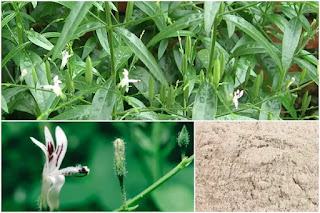Aniseed (Pimpinella anisum)
Use:
Aniseed, an aromatic herb native to Egypt, is valued for both its flavorful characteristics and medicinal properties. It is frequently employed in the treatment of colds, coughs, and digestive ailments. Notably, aniseed exhibits antifungal, antimicrobial, and antiviral properties, while also serving as a diuretic. Aniseed is often used in cooking and baking to add a licorice-like flavor to dishes. It is also used to make herbal teas and as a natural remedy in traditional medicine. Some common uses of aniseed include improving digestion, relieving gas and bloating, and soothing coughs and cold symptoms.
Dosage:
The appropriate dosage of aniseed can vary depending on the form in which it is consumed (e.g., whole seeds, powder, extract) and the purpose of use. It is recommended to follow the instructions on the product packaging or consult with a healthcare professional or herbalist for specific dosage recommendations.
The dosage of aniseed powder can vary depending on the intended use and individual factors. Aniseed powder, also known as anise powder or powdered anise, is derived from the seeds of the anise plant (Pimpinella anisum) and is used for its aromatic and flavoring properties. Here are some general guidelines for the use of aniseed powder:
1. Culinary Use: Aniseed powder is commonly used in cooking and baking to add a distinct licorice-like flavor to dishes. The amount of aniseed powder used can vary depending on the recipe and personal preference. Typically, 1/4 to 1/2 teaspoon of aniseed powder is added to dishes such as bread, cookies, cakes, or beverages. It's important to start with a smaller amount and adjust according to taste.
2. Herbal Remedies: Aniseed powder is also used in herbal remedies for its potential medicinal benefits, such as aiding digestion or relieving cough and cold symptoms. When using aniseed powder in herbal preparations, it's recommended to follow specific recipes or consult with a healthcare professional for appropriate dosage guidance.
3. Supplements: Aniseed powder is available in the form of capsules or tablets as a dietary supplement. The dosage instructions for aniseed powder supplements can vary depending on the specific product and concentration. It's important to follow the instructions provided by the manufacturer or consult with a healthcare professional for appropriate dosage guidance if using aniseed powder as a supplement.
As with any dietary ingredient, it's important to use aniseed powder in moderation and consider individual factors, such as allergies or sensitivities. If you have any specific health concerns or questions regarding the use of aniseed powder, it's recommended to consult with a healthcare professional for personalized advice.
Side Effects:
When consumed in moderate amounts as part of food or herbal preparations, aniseed is generally considered safe for most people. However, some individuals may be allergic or sensitive to aniseed and may experience allergic reactions such as skin rashes, itching, or difficulty breathing. It is advisable to discontinue use and seek medical attention if any adverse reactions occur.
Additionally, aniseed contains a compound called anethole, which can have estrogen-like effects on the body. As a result, individuals with hormone-sensitive conditions, such as certain types of cancer or hormone-related disorders, should exercise caution and consult with a healthcare professional before using aniseed in medicinal amounts.
It's worth noting that while aniseed has a long history of culinary and traditional medicinal use, scientific research on its specific health effects is limited. Therefore, it's important to use aniseed in moderation and consult with a healthcare professional for personalized advice, particularly if you have any pre-existing health conditions or are taking medications.
Nutritional value:
Aniseed is a low-calorie herb but rich in essential nutrients. While the specific nutritional composition can vary, aniseed is a good source of minerals like iron, calcium, magnesium, and zinc. It also contains small amounts of vitamins such as vitamin C and certain B vitamins. Aniseed is low in fat and carbohydrates but provides dietary fiber.
- Calories: 23
- Protein: 1 gram
- Fat: 1 gram
- Carbs: 3 grams
- Fiber: 1 gram
- Iron: 13% of the Reference Daily Intake (RDI)
- Manganese: 7% of the RDI
- Calcium: 4% of the RDI
- Magnesium: 3% of the RDI
- Phosphorus: 3% of the RDI
- Potassium: 3% of the RDI
- Copper: 3% of the RDI
- Essential Oils: Aniseed contains essential oils, which give it its distinct flavor and aroma. The primary active compound in aniseed essential oil is anethole, which is responsible for its characteristic licorice-like taste.
- Phytochemicals: Aniseed contains various phytochemicals, including flavonoids, phenolic compounds, and antioxidants. These phytochemicals contribute to the potential health benefits associated with aniseed consumption.
- Fiber: Aniseed provides dietary fiber, which is important for maintaining a healthy digestive system and promoting regular bowel movements.
Overall, aniseed is a flavorful herb that can be enjoyed in moderation as part of a balanced diet. If you have any specific dietary concerns or health conditions, it is advisable to consult with a healthcare professional or nutritionist for personalized advice.




Comments
Post a Comment